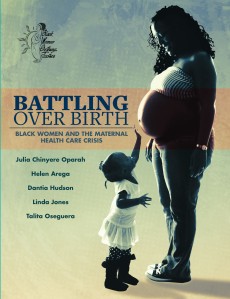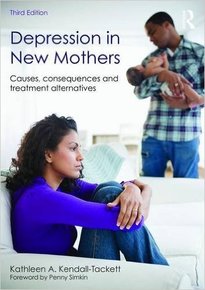Current research findings on the impact of breastfeeding on multiple sclerosis suggest that it may offer some protection against development and relapse.
Multiple sclerosis (MS) is a disease of the brain and spinal cord (central nervous system) to which women are more susceptible than men. The immune system attacks the protective sheath (myelin) that covers nerve fibers and causes communication problems between the brain and the rest of the body. Eventually, the disease may cause the nerves themselves to deteriorate or become permanently damaged.
Signs and symptoms of MS vary widely and depend on the amount of nerve damage and which nerves are affected. Because MS causes damage in the central nervous system, nearly any bodily function can be adversely affected. However, the most common symptoms are overwhelming fatigue, visual disturbances, altered sensation and difficulties with mobility. Symptoms of MS are unpredictable, and vary in type and severity between individuals and in the same person over time. Symptoms may disappear or remit completely or they may persist and worsen. Some people with severe MS may lose the ability to walk independently or at all, while others may experience long periods of remission without any new symptoms. There is no cure but treatments can help speed recovery from attacks, modify the course of the disease, and help to manage symptoms.
Women
The Centers for Disease Control and Prevention estimate that worldwide more than 2.3 million people are affected by MS. This autoimmune disease is at least two to three times more common in women than in men, suggesting that hormones may play a significant role in determining susceptibility to MS. Some recent studies have suggested that the female to male ratio may be as high as three or four to one. Most people are diagnosed between the ages of 20 and 50—during the childbearing years—although MS can occur in young children and significantly older adults.

Relapses and exclusive breastfeeding
A meta-analysis, Pakpoor, Disanto, Lacey, Hellwig, Giovannoni, & Ramagopalan, 2012, concluded that women with MS who breastfeed are half as likely to experience a relapse of symptoms compared to those with MS who don’t breastfeed.
Women with MS experience an elevated risk of relapse after giving birth. Approximately 20% to 30% of women with MS experience a relapse within the first 3 to 4 months postpartum. Hellwig et al., 2015 aimed to determine the effect of exclusive breastfeeding (i.e. no regular replacement of breastfeeding meals with supplemental feedings) on postpartum risk of MS relapse and to investigate the effect of introducing supplemental feedings on that risk. The findings of this study suggest that exclusive breastfeeding is a modestly effective MS treatment. The authors suggest that women with MS who breastfeed exclusively should be supported to do so.
Lactational amenorrhea, the period of time during which a woman does not menstruate postpartum, may contribute to the reported decrease in relapse rate with exclusive breastfeeding.
Langer-Gould, Smith, Hellwig, Gonzales, Haraszti, Koebnick, & Xiang, 2017 found that mothers who breastfed for 15 months or more over one or more pregnancies had a lower risk of developing MS or its precursor, clinically isolated syndrome (CIS). CIS is a first episode of neurologic symptoms caused by inflammation and demyelination in the central nervous system. The episode, which by definition must last for at least 24 hours, is characteristic of multiple sclerosis but does not yet meet the criteria for a diagnosis of MS because people who experience CIS may or may not go on to develop the disease. The authors observed that this was consistent with the other known maternal health benefits of breastfeeding and with their previous observation that women with MS who breastfeed exclusively are at lower risk of postpartum relapses.
Women are often advised not to breastfeed when taking medication but often very little of the drug crosses into the breast milk. Mothers taking medication for MS should consult their IBCLC and or physician to ascertain the compatibility of any drug with breastfeeding. See Lactmed and Medications and Mothers’ Milk. The literature on breastfeeding and MS has never suggested that breastfeeding has a deleterious effect. The studies have shown breastfeeding either had no effect or, more commonly, was associated with suppression of disease activity. Further research is needed to adequately determine the association.
References
Hellwig, K., Rockhoff, M., Herbstritt, S., Borisow, N., Haghikia, A., Elias-Hamp, B., … Langer-Gould, A. (2015). Exclusive breastfeeding and the effect on postpartum multiple sclerosis relapses. JAMA Neurology, 72(10), 1132. doi:10.1001/jamaneurol.2015.1806
Langer-Gould, A., Smith, J. B., Hellwig, K., Gonzales, E., Haraszti, S., Koebnick, C., & Xiang, A. (2017). Breastfeeding, ovulatory years, and risk of multiple sclerosis. Neurology, 89(6), 563–569. doi:10.1212/wnl.0000000000004207
Pakpoor, J., Disanto, G., Lacey, M. V., Hellwig, K., Giovannoni, G., & Ramagopalan, S. V. (2012). Breastfeeding and multiple sclerosis relapses: a meta-analysis. Journal of Neurology, 259(10), 2246–2248. doi:10.1007/s00415-012-6553-z
























Leave a comment